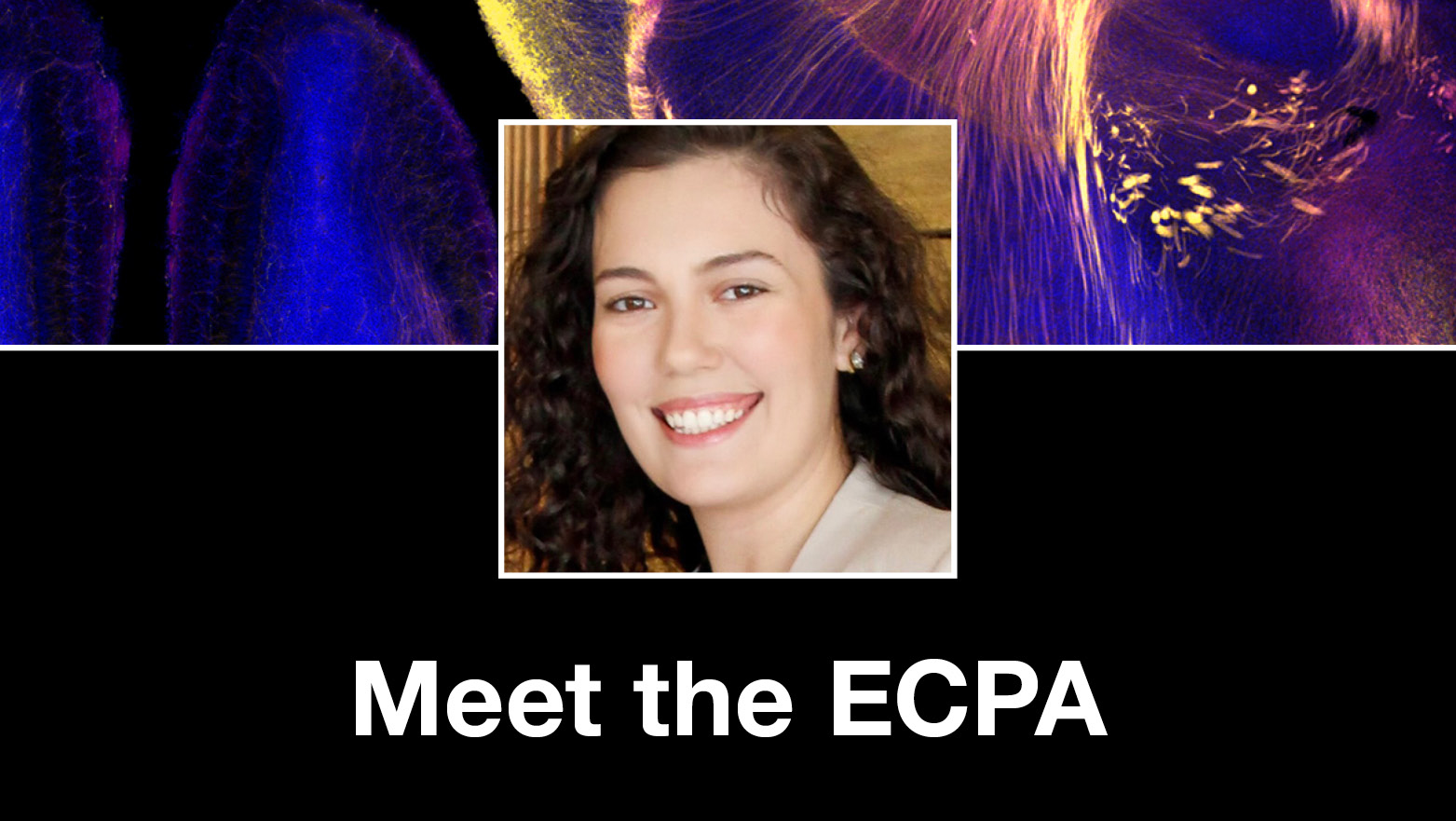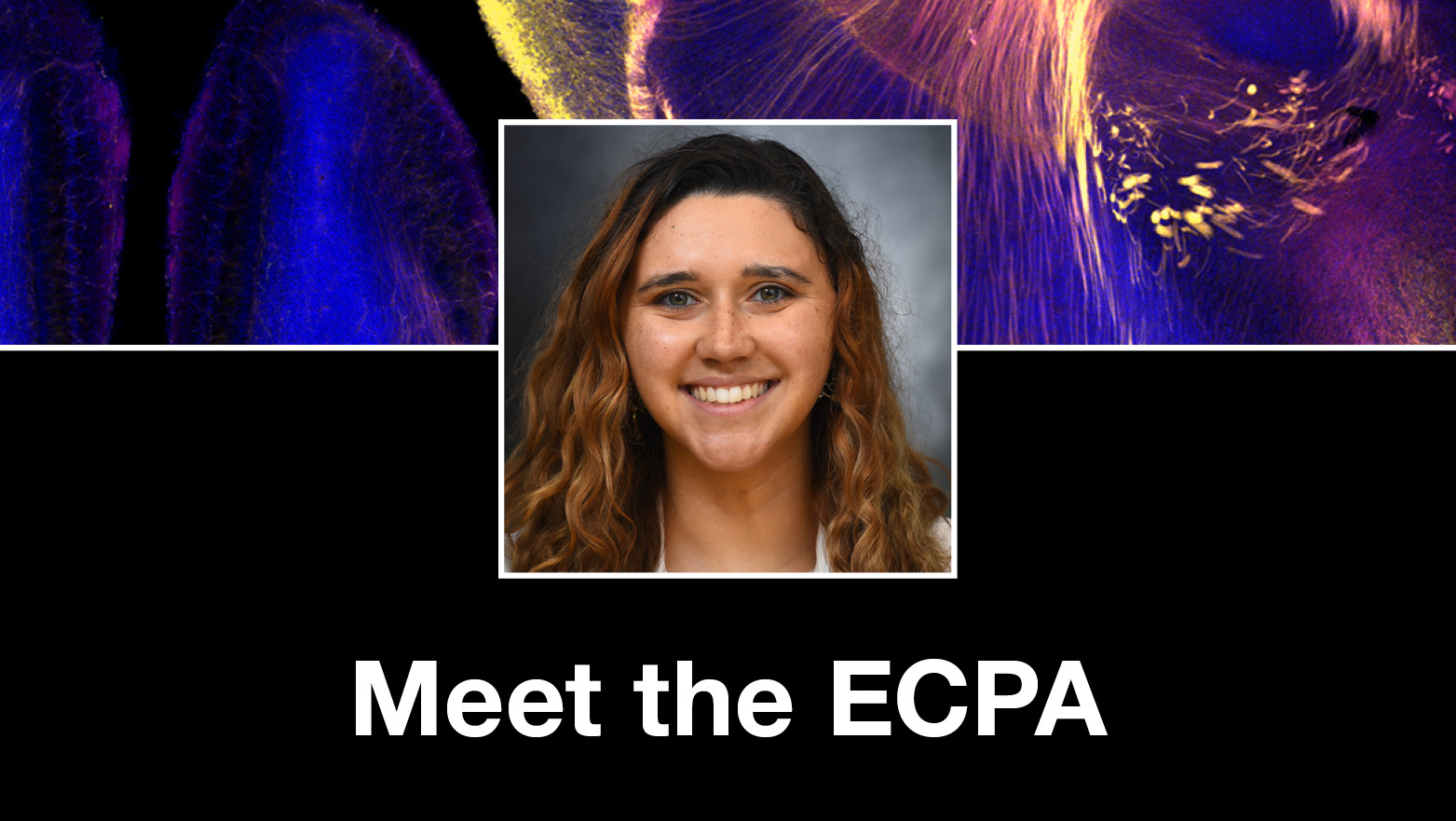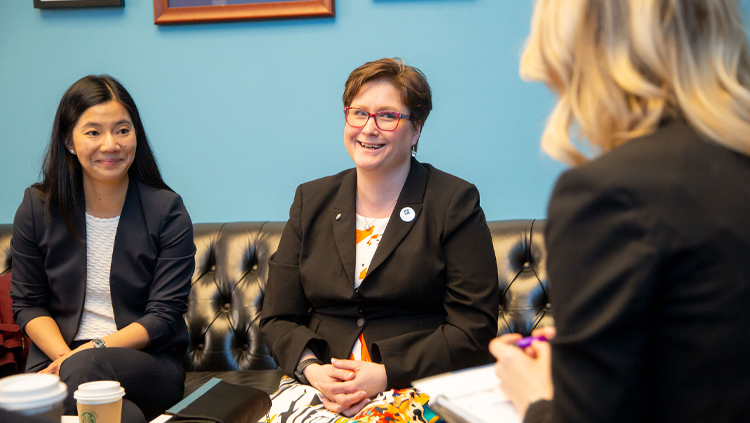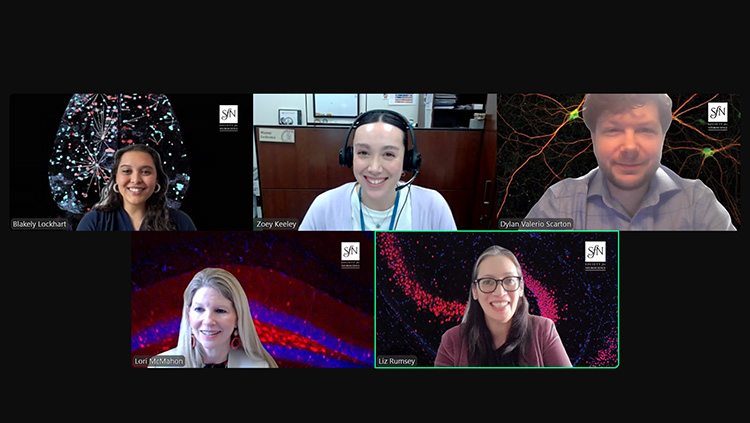Read onto learn about Andrew Strohman, an MD and PhD candidate at the Virginia Tech Carilion School of Medicine and the Fralin Biomedical Research Institute, and what sparked his interest science policy and advocacy in this next interview in the “Meet the ECPAs” series.
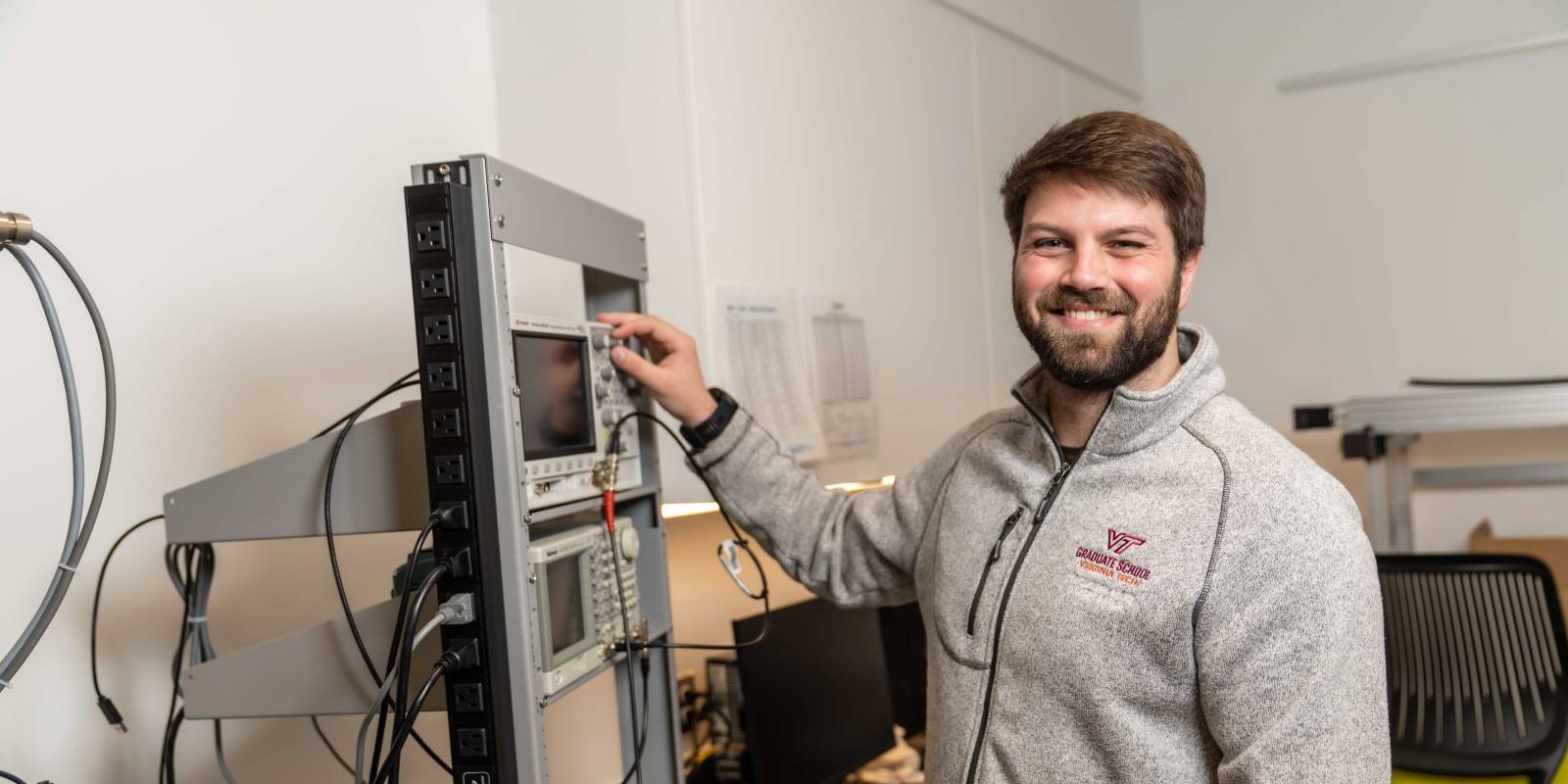
Describe your journey in neuroscience and current research.
I had always had a fascination with neuroscience and medicine, originally majoring in biology. I also had a strong interest in public health and health policy, so my career path took me through a master of public health and a brief stint working in health policy at both the state and federal level prior to medical school. Once entering medical school, I rediscovered my love of neuroscience and chose to pursue dual degree training. Now, I am an MD and PhD candidate studying low-intensity focused ultrasound (LIFU) as a novel form of non-invasive brain stimulation in humans. Specifically, I investigate how the brain and body communicate with each other in the context of pain with the hope of both better understanding the neural and physiologic mechanisms of pain and developing new therapeutic options to circumvent the need for pharmacotherapies or surgery.
Why are you interested in science policy and advocacy?
During my time in health policy, I quickly realized how precise, targeted policy and regulation could facilitate the development and delivery of new treatments into the hands of patients. With new clinical technologies and therapies being developed all the time, there is a need to align policy and scientific efforts to ensure this process can not only continue, but improve over time. One clear way of doing this is through federal funding for neuroscience research either through the NIH or specific programs like the BRAIN Initiative. Other ways are through advocacy efforts to directly engage policymakers and the public to raise awareness about the value of neuroscience research. Since nearly all research, including my own, relies on these funding sources, this makes me all the more motivated to play a small role in leveraging policy to accelerate scientific progress.
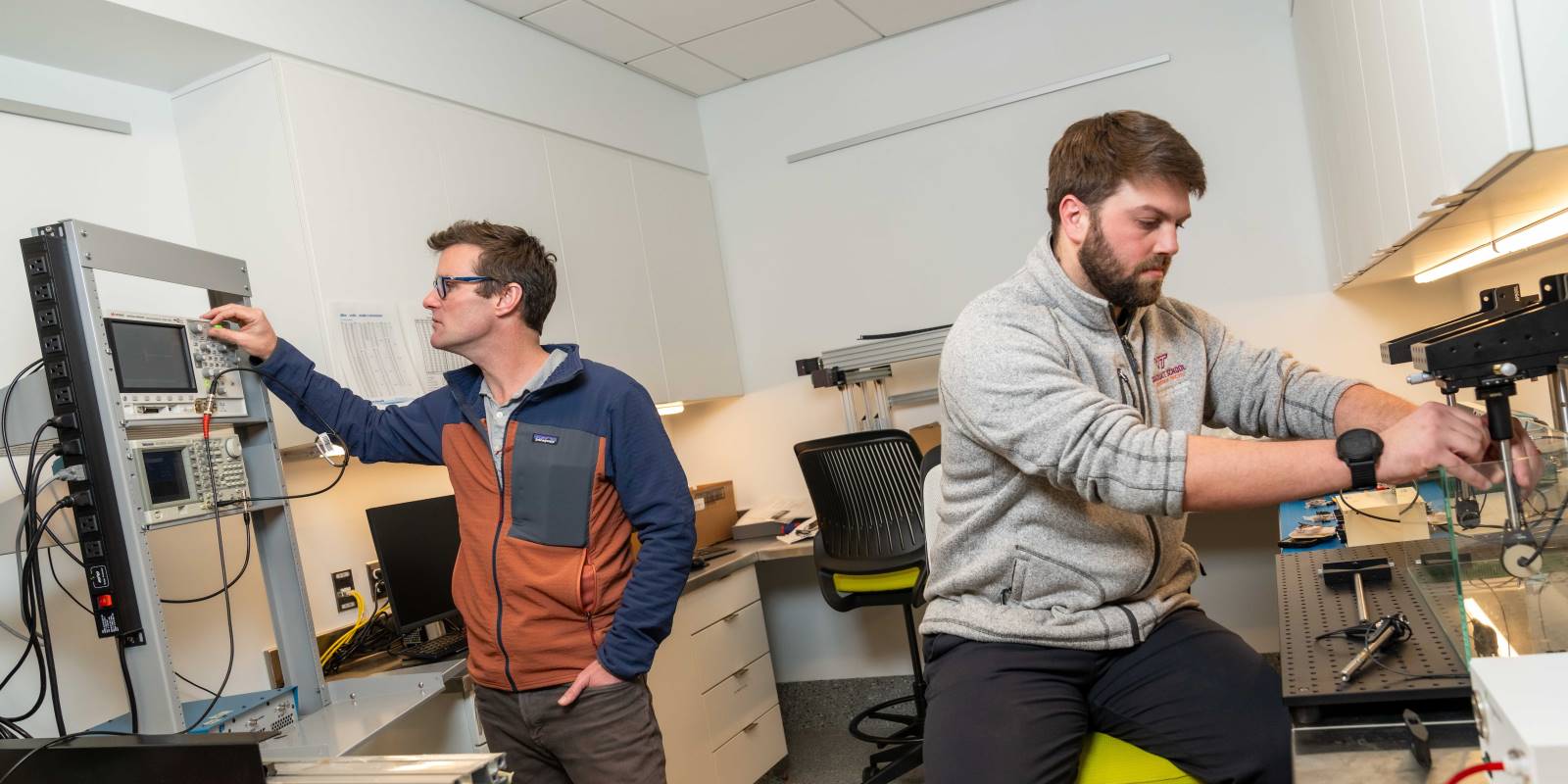
What does being an ECPA mean to you? Can you describe your two advocacy-related projects you proposed as part of the program?
Unfortunately, the lack of communication between scientists and policymakers unnecessarily hinders the scientific process. This is the exact gap the Society for Neuroscience is trying to fill with the ECPA program, which is why I was thrilled to be selected to serve in the class. Being an ECPA means I can take a step towards integrating all of the various domains of my training background into a cohesive approach that blends the bench and bedside with the policy realm to help improve the lives of patients.
During my time as an ECPA, I aim to complete a couple of projects that will help put my policy and scientific work together. First, I hope to organize a local policy group that integrates neuroscience graduate students, medical students, faculty, and policymakers to facilitate problem solving across domains. Second, I hope to directly advocate for support for ongoing work in focused ultrasound, which in addition to the emerging brain stimulation applications I study has a wealth of current and upcoming clinical applications such as opening the blood brain barrier to improve the delivery of chemotherapeutics.
Why do you feel it’s important to speak to your federal policymakers on the importance of continued support of federal investment in biomedical research?
While you sometimes see headlines on a new breakthrough drug or treatment, what you don't see is the years or decades worth of work that went into the development of that treatment. This work is both expensive and time-consuming, and while federal support for biomedical research rarely makes the headlines, a few extra dollars of funding goes far in furthering our understanding and treatment of human diseases and thus improve well-being for everyone. The only way federal policymakers have this important issue on their radar is through speaking with them directly and by educating them on the value of biomedical research in their own lives and those of their constituents.
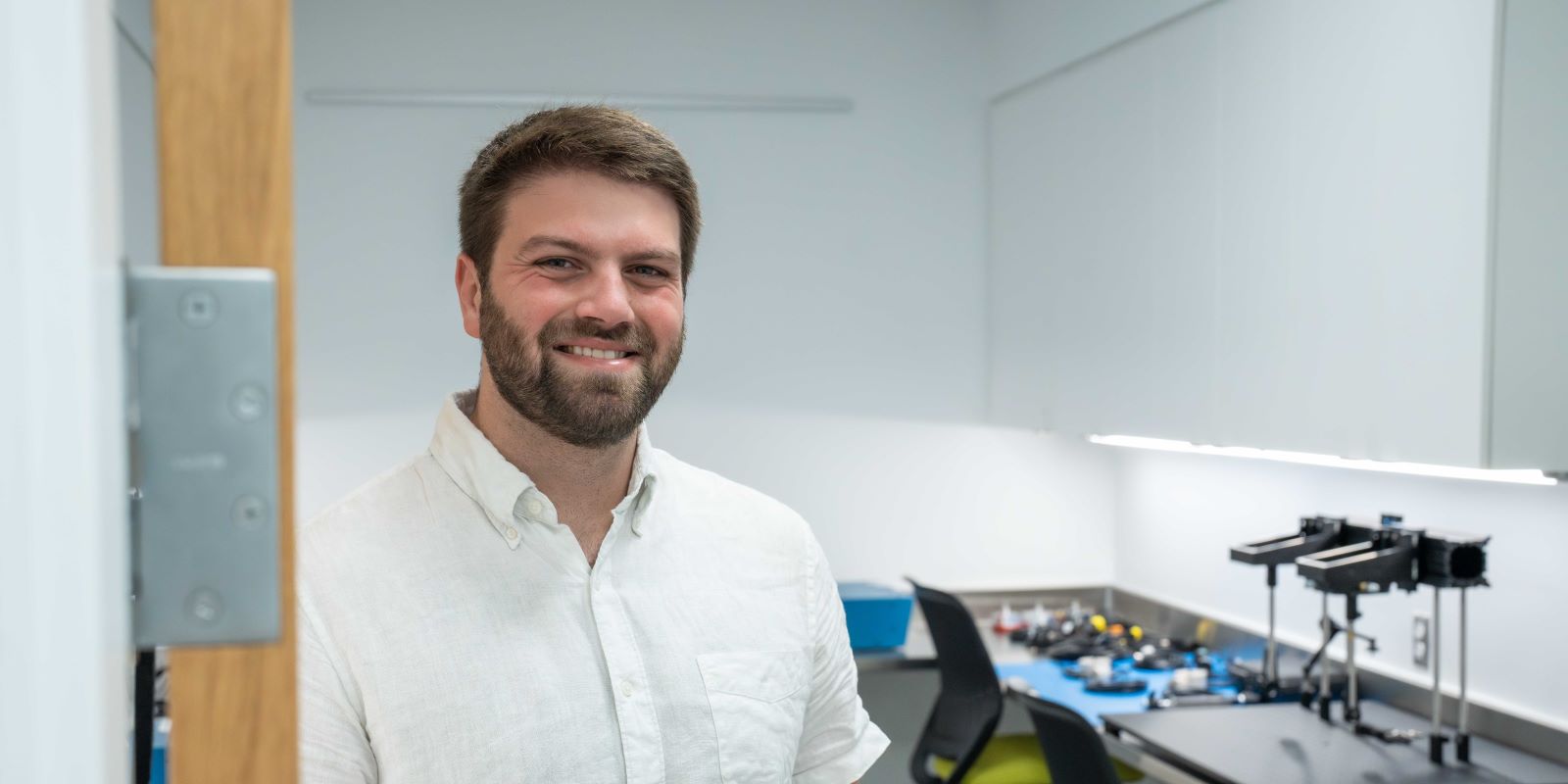
How has being an SfN member benefited you in both your professional career and advocacy journey?
Being an SfN member has helped me to connect with fellow neuroscientists across the world in both related and disparate fields. This year will be my first time attending the annual SfN meeting, and taking part as both a member and an ECPA will expose me to new ideas and techniques that will positively impact both my career and policy goals.



